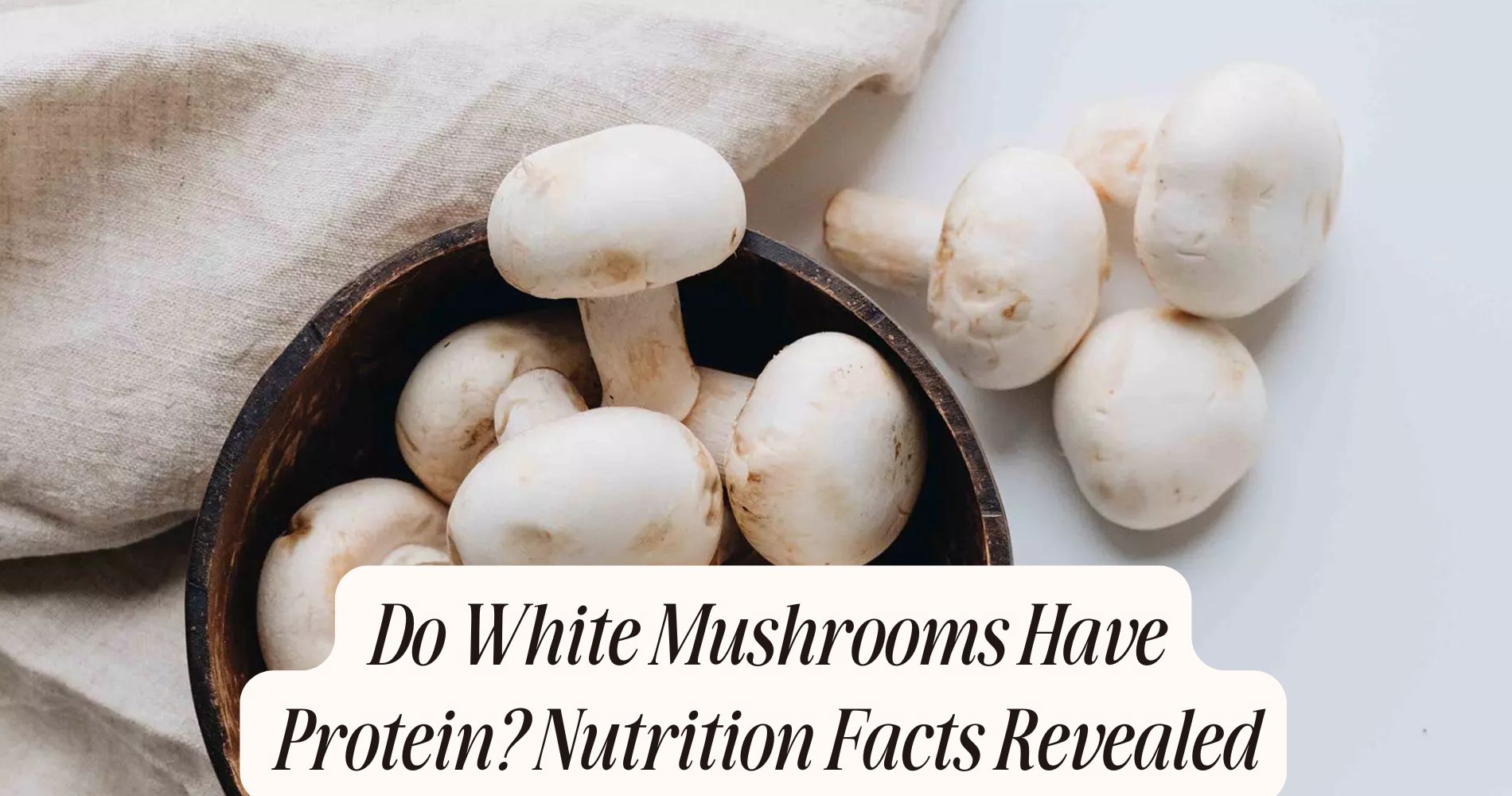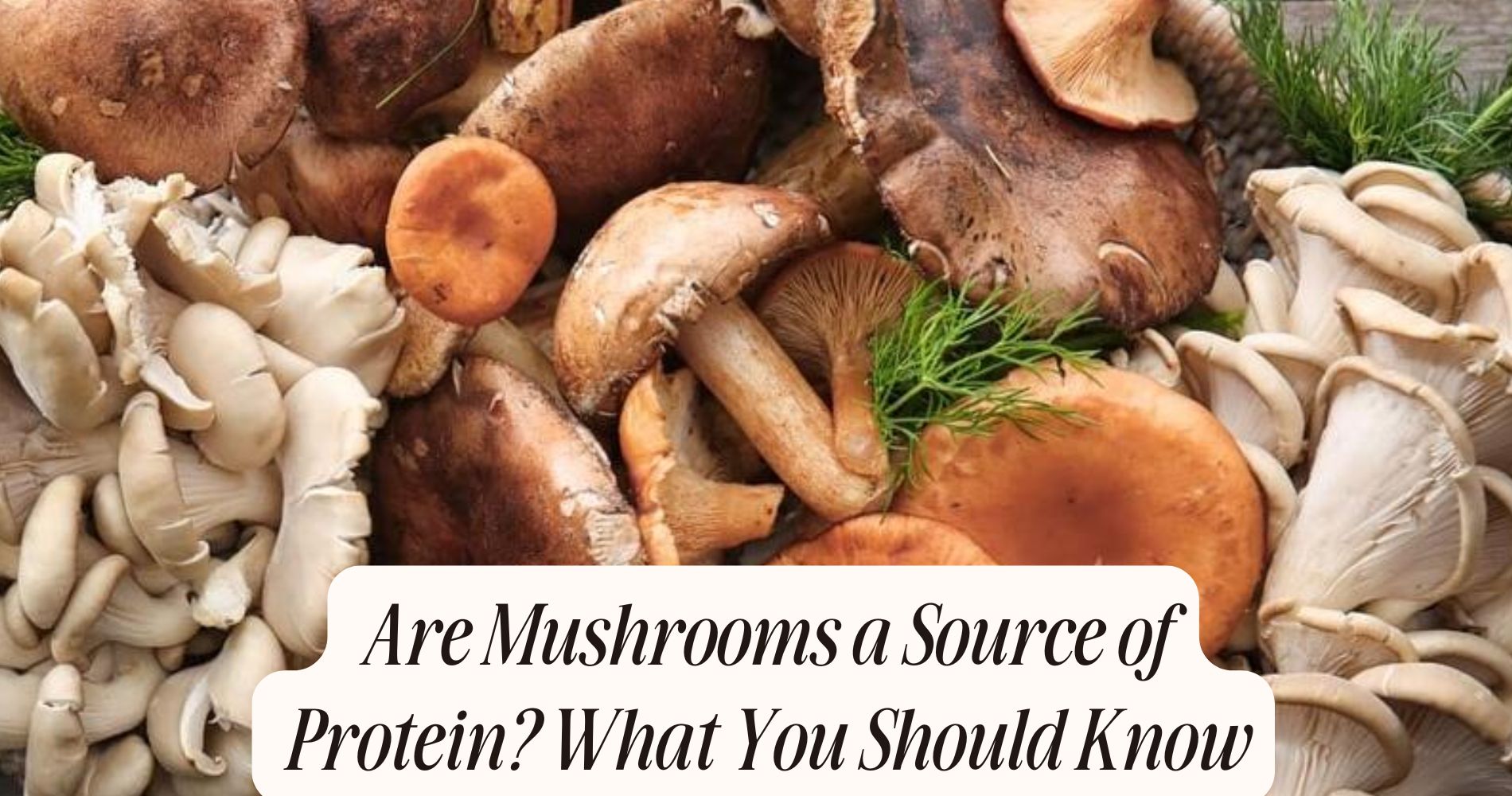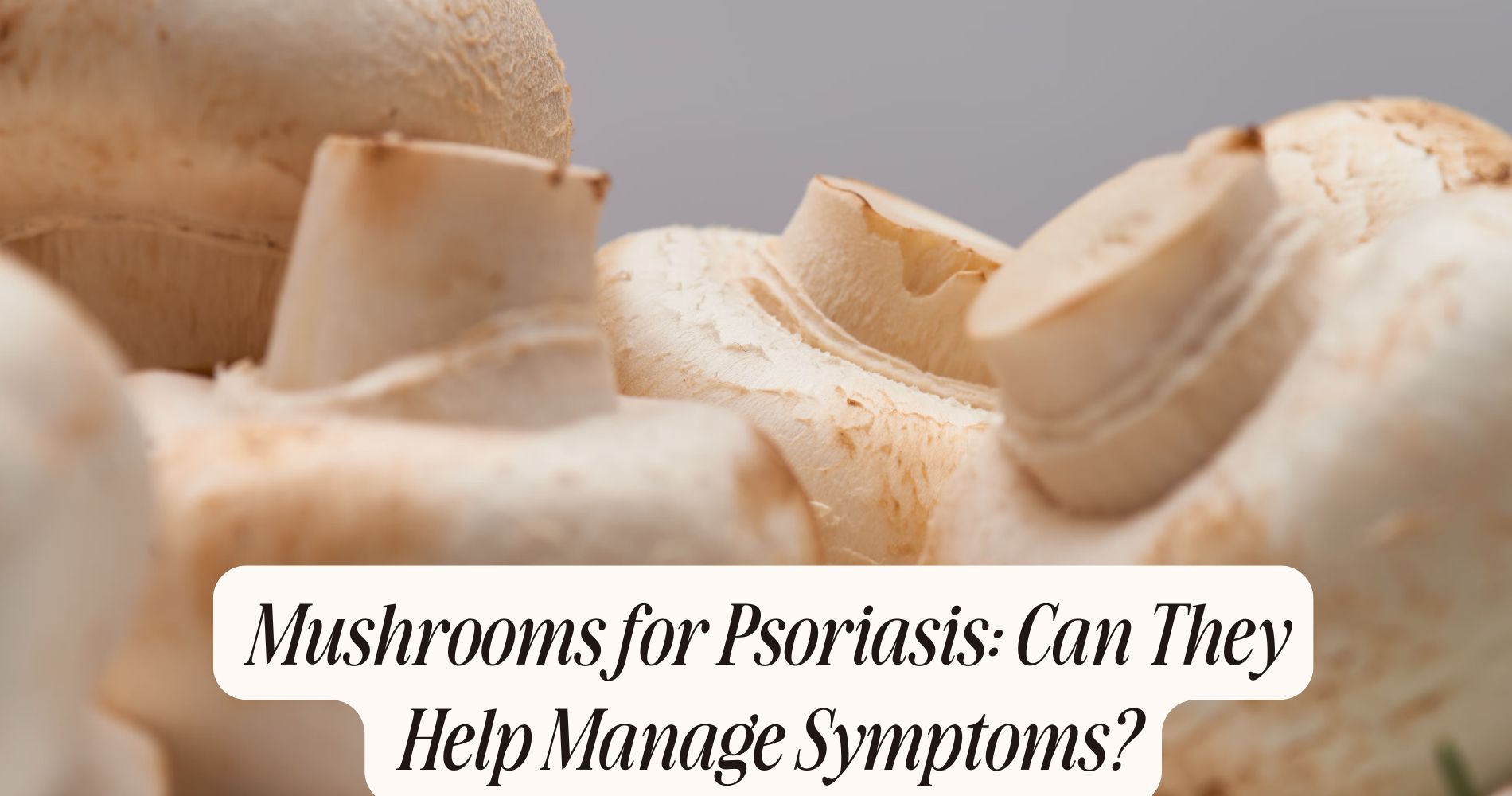
Do White Mushrooms Have Protein? Nutrition Facts Revealed
Do white mushrooms have protein? Yes, white mushrooms contain about 3 grams of protein per 100 grams, making them a modest source of this nutrient. While they offer essential amino acids, they shouldn't be your main protein source due to lower bioavailability. However, their low-calorie count and rich nutritional profile, including vitamins and antioxidants, make them a valuable addition to your diet. If you're curious about their other health benefits or how to incorporate them into meals, there’s more to discover.
Understanding Protein in Foods
When you think about the protein content in your diet, it’s vital to recognize that not all protein sources are created equal.
Animal-based proteins, like meat and dairy, typically provide complete amino acids, which enhance protein absorption in your body. In contrast, many plant-based protein sources may lack one or more essential amino acids, potentially affecting their overall quality.
For peak protein utilization, diversifying your protein sources is important. Incorporating a mix of legumes, nuts, and whole grains can help guarantee you receive a balanced amino acid profile.
Understanding the differences in protein quality and absorption can empower you to make informed dietary choices, ultimately supporting your health and fitness goals.
Nutritional Profile of White Mushrooms
Although often overlooked, white mushrooms, or Agaricus bisporus, offer a unique nutritional profile that can complement various diets.
These fungi are low in calories yet high in essential vitamins and minerals, including B vitamins, selenium, and potassium. Their versatile flavor profiles make them suitable for numerous cooking methods, from sautéing to grilling.

Incorporating white mushrooms into your meals can enhance both taste and nutrition, adding depth to salads, pasta, or stir-fries. Plus, they contain antioxidants that support overall health.
Their adaptability in various cuisines allows you to experiment with different dishes while benefiting from their nutritional content. By including white mushrooms in your diet, you can enjoy a flavorful, nutrient-dense addition to your meals.
Protein Content in White Mushrooms
When you consider white mushrooms, you'll find they contain a modest amount of protein per serving, typically around 3 grams.
These mushrooms also provide essential amino acids, making them a valuable addition to a balanced diet.
Protein Amount Per Serving
White mushrooms, or Agaricus bisporus, pack a surprising protein punch, offering about 3 grams of protein per 100 grams serving. This makes them a valuable addition to your diet if you’re exploring diverse protein sources.
While they won't replace meat or legumes, incorporating white mushrooms into your meals can enhance protein intake, especially in vegetarian or vegan diets. Their low-calorie count and versatile flavor allow you to enjoy them in various dishes without greatly increasing your overall caloric intake.
If you’re looking for a way to boost your protein intake, consider adding these mushrooms to salads, stir-fries, or pasta. They provide a unique texture and flavor while contributing to your daily protein needs effectively.
Essential Amino Acids Present
Vital amino acids play an important role in your body, and white mushrooms contain a notable profile of these essential nutrients. While they're not a complete protein source, they provide several vital amino acids that contribute to your overall nutrition.
Specifically, white mushrooms include amino acids like leucine, valine, and phenylalanine, which are critical for muscle repair and immune function. Their amino acid profile supports various bodily functions, making them a valuable addition to a balanced diet.
Incorporating white mushrooms into your meals can enhance your intake of these vital amino acids, particularly when combined with other protein sources. This synergy can help guarantee you meet your daily nutritional needs effectively.

Comparison With Other Foods
Although many people might overlook white mushrooms as a protein source, a closer look reveals their nutritional value in comparison to other foods.
White mushrooms contain about 3 grams of protein per 100 grams, which is modest compared to higher protein sources like chicken breast, offering around 32 grams per 100 grams. However, when you compare them to other mushroom varieties, such as shiitake, which provides about 2.2 grams, white mushrooms hold a slight advantage.
Additionally, they’re low in calories and fat, making them a healthy addition to your diet. While they shouldn't replace primary protein sources like meat or legumes, incorporating white mushrooms can enhance your meals while contributing beneficial nutrients and flavor.
Health Benefits of White Mushrooms
White mushrooms are packed with essential nutrients that can support overall health.
They boost your immune system and may aid in weight management, making them a valuable addition to your diet.
Understanding their nutrient density helps you appreciate the multiple health benefits they offer.
Nutrient Density Overview
Mushrooms pack a surprising nutritional punch, making them a valuable addition to a balanced diet. They're low in calories yet rich in essential nutrients like B vitamins, selenium, and copper. This nutrient density enhances your body's ability to absorb nutrients from other foods, promoting better overall health.
The concept of food synergy plays a significant role here; when you combine mushrooms with other nutrient-rich foods, their health benefits multiply. For instance, pairing mushrooms with vegetables can enhance your vitamin D absorption, while their fiber content supports digestive health.
Incorporating white mushrooms into your meals not only diversifies your diet but also optimizes nutrient intake, ensuring you get the most out of your food choices.
Immune System Support
When you're looking to boost your immune system, incorporating white mushrooms into your diet can be a smart choice.
These fungi are rich in compounds like beta-glucans, which support a healthy immune response. Research shows that the polysaccharides found in white mushrooms can enhance the activity of immune cells, helping your body fend off infections more effectively.
Additionally, white mushrooms contain antioxidants that combat oxidative stress, further fortifying your immune defenses.
The mushroom benefits extend to promoting overall well-being, as a strong immune system plays a vital role in preventing illness.
Weight Management Benefits
Incorporating white mushrooms into your meals can also aid in weight management, thanks to their low calorie yet nutrient-dense profile.
These mushrooms are a fantastic choice for anyone seeking weight loss, as they contain about 15 calories per cup while offering essential nutrients. Their high water content contributes to satiety, helping you feel full without consuming excess calories.
Additionally, white mushrooms’ fiber content plays an important role in appetite control, promoting longer-lasting feelings of fullness. Research indicates that meals rich in low-calorie, high-fiber foods can lead to better weight management outcomes.

How to Incorporate White Mushrooms Into Your Diet
While many people may overlook white mushrooms in favor of more exotic varieties, these versatile fungi can be easily integrated into a variety of dishes, enhancing both flavor and nutrition.
You can sauté them with garlic and olive oil for a quick side dish or toss them into salads for added texture. Try using white mushrooms in soups or stir-fries, where their umami flavor shines through.
For a heartier meal, consider incorporating them into pasta sauces or casseroles. Experiment with different cooking methods like grilling or baking to diversify your meals.
With so many recipe ideas available, you’ll find that white mushrooms not only elevate your dishes but also contribute valuable nutrients to your diet.
Comparing White Mushrooms to Other Protein Sources
White mushrooms not only add flavor to your meals but also offer a modest amount of protein compared to other common protein sources. While 100 grams of white mushrooms contain about 3 grams of protein, other sources, like chicken or tofu, provide considerably more—around 31 grams and 8 grams, respectively.
Different mushroom varieties, such as shiitake or portobello, might've varying protein content but still fall short compared to animal-based proteins. However, it’s essential to take into account protein absorption; plant proteins, including those from mushrooms, often have lower bioavailability than animal proteins.
This means you might need to consume a larger quantity of mushrooms to achieve your protein requirements, making them a complementary ingredient rather than a primary protein source.
Boost Your Wellness with SUPER MUSHROOM GUMMIES
Looking for an easy and delicious way to enjoy the benefits of mushrooms? Well Gummies' SUPER MUSHROOM GUMMIES are packed with 10 types of functional mushrooms, including the versatile white mushroom, to fuel your brain, enhance focus, and support your immune system naturally. These vegan gummies come in a tasty wild berry flavor—just like your favorite candy—without any jitters or crash. Energize your body and mind with SUPER MUSHROOM GUMMIES and feel your best all day long!
Frequently Asked Questions
Are White Mushrooms Suitable for Vegetarian and Vegan Diets?
Yes, white mushrooms are suitable for vegetarian and vegan diets. They provide essential nutrients and can enhance flavor in vegan meals, serving as a valuable addition to various vegetarian sources of protein and other nutrients.
How Do White Mushrooms Compare to Other Mushrooms in Protein Content?
When you compare protein content across mushroom varieties, white mushrooms rank lower than portobellos or shiitakes. However, they still offer a decent amount of protein, making them a valuable addition to your diet.
Do Cooking Methods Affect the Protein Levels in White Mushrooms?
Cooking techniques can impact nutrient retention in white mushrooms. Methods like steaming or sautéing preserve more protein compared to boiling, which may lead to nutrient loss. Choosing the right technique enhances your dish's nutritional value.
Can White Mushrooms Help With Muscle Recovery After Workouts?
White mushrooms can aid in muscle repair after workouts due to their antioxidant properties and essential nutrients. Incorporating them into your post-workout meals may enhance overall recovery, supporting your body's healing process effectively.
Are There Any Allergens Associated With White Mushrooms?
Yes, some people experience mushroom allergies, leading to allergic reactions like skin rashes or digestive issues. It's important to monitor your body's response when consuming white mushrooms to avoid any potential adverse effects.
Conclusion
Incorporating white mushrooms into your diet can boost your protein intake while offering essential nutrients. With about 3 grams of protein per 100 grams, they may not be the highest protein source, but their low calorie count and rich antioxidant properties make them a valuable addition to meals. By understanding their nutritional profile, you can effectively complement other protein sources and enhance your overall health. So, consider adding these versatile fungi to your next dish for added benefits.




